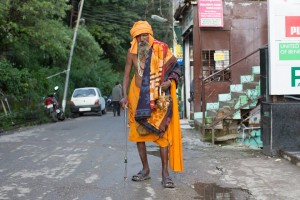“Very porous, we humans are,” she said. One of my two wise yogi gurus made the jump between the Humans of New York photo I had shared and what it means to live faithfully.

This is not my photo. Find more beauty via Humans of New York. Follow him on Facebook and Instagram. My life has been better since I’ve read these. life of faith. The picture of an older man included a quote from him, saying: life of faith.
The picture of an older man included a quote from him, saying: “If you feed your children with food earned from corruption, they will be corrupt. If you feed your children with food earned from honesty, they will be honest.” I promise, this isn’t just another post about Monsanto or eating local or those flags I love to wave. The man’s wisdom, and my friend’s revelation, bears a deeper truth. We become what we take in. The Bread of Corruption means we turn our face from the people who hurt. When we do that repeatedly, we become corrupt ourselves.
As Jesus said, where your treasure is, there your heart will be also.
Nothing in this world is “just something.” You don’t read “just” a book – the story informs your own story and changes the way you see the world. You don’t watch “just” a show. The characters shape your view of people and relationships. You form your view of the world through everything in your life because it becomes your baseline of “normal.” When we are continually exposed to violence, we begin to believe that violence is a way of life and unavoidable – ask any gang member. When we steep ourselves in malls and magazines, we believe handbags and couture are required for normal functioning. We are indeed so porous. We will take in anything around us. I believe that if anyone finds contemporary American Christianity hallow, perhaps it’s because little is spoken in churches about our propensity to take in what is around us beyond the classic sins of sex, drugs and rock ‘n roll. (Perhaps that’s because our churches tend to corporately absorb the culture in its own sterilized way, but alas, that’s a different post.) Spiritual living can come up short when we try to wash the wrong side of the cup. When we understand our sponge-like nature, we can then make sure we’re in direct contact with that which we want to embody. Love. Joy. Peace. Patience. Kindness. Goodness. Faithfulness. Self-control. We speak of these things as tasks to accomplish – “grow more patient.” But we cannot. We can expose ourselves to patience. We can watch others live patiently. We can show gratitude and acknowledge the ways in which others bear patience with us. We look back and realize we have become more patient than we were last year. If we crave a deeper spirituality, a deeper faith, let us begin with how shallow we are. Start to ask how much of God’s spirit we intentionally expose ourselves to each day. Make a practice of taking of our shoes. If we want to bear more of the image of Jesus, we must expose ourselves to Jesus – through the scriptures, through the Spirit and through those whom we share this celestial ball. Like our bread, we choose how we fill our spirits.